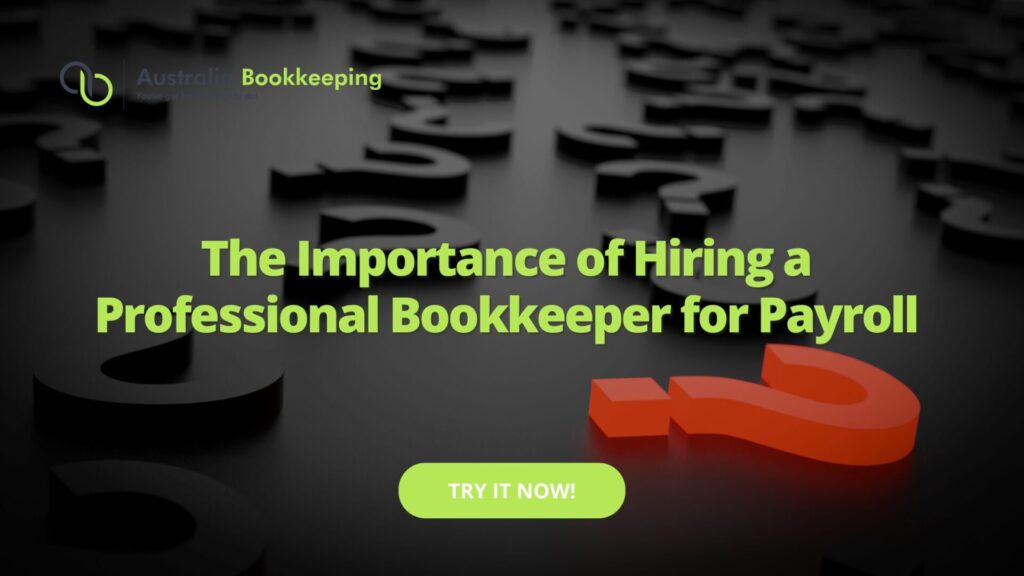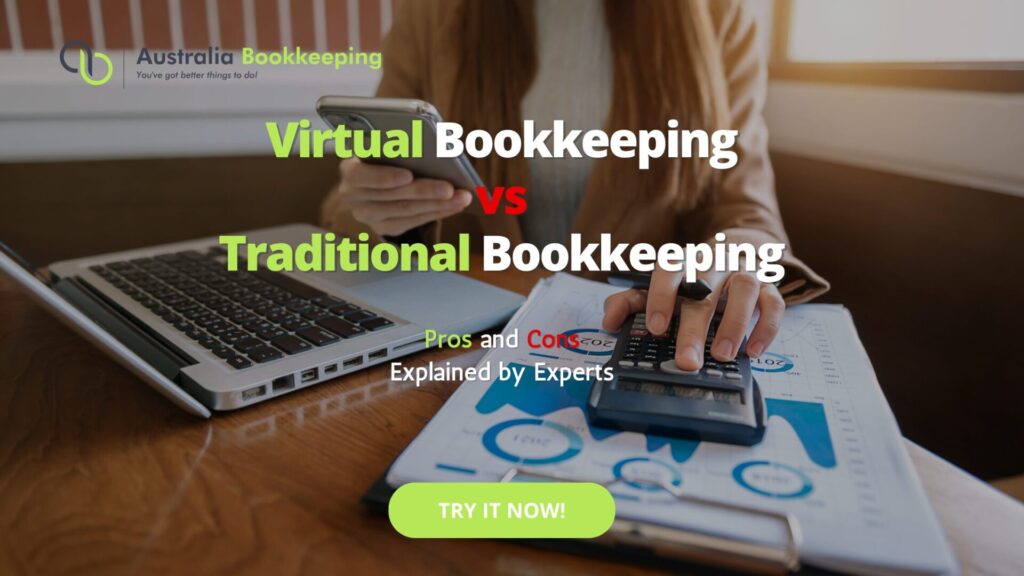Importance of Online Bookkeeping Security | Free Consultation
The Importance of Online Bookkeeping Security: Safeguarding Your Business’s Financial Data 1. Introduction In today’s digital world, online bookkeeping has become essential for businesses of all sizes. Whether you’re a small startup or a large corporation, the security of your financial data should be a top priority. With the rise of virtual bookkeeping services, such as Xero and MYOB, businesses now have the option to outsource their bookkeeping needs to professionals across Australia. As a result, the demand for bookkeeper Melbourne, bookkeeper Adelaide, and other CPA services has significantly increased. Schedule a free call with the most reliable and affordable bookkeepers in Australia. In this blog post, we will explore the importance of online bookkeeping security and how it can safeguard your business’s financial data. Whether you’re new to virtual bookkeeping or looking to enhance your existing system, this article will provide valuable insights and tips to ensure the protection of your sensitive information. 2. Understanding the risks of online bookkeeping While online bookkeeping offers many benefits, such as convenience and cost-effectiveness, it also comes with certain risks that business owners need to be aware of. One of the main concerns is the potential for data breaches and unauthorized access to sensitive financial information. In today’s digital landscape, cybercriminals are constantly evolving and finding new ways to exploit vulnerable systems. Businesses must also consider the risks associated with outsourcing their bookkeeping services to third-party providers. While reputable virtual bookkeeping services implement strict security measures, there is still a level of trust involved in handing over your financial data to someone else. Additionally, human error can pose a significant risk in online bookkeeping. Accidentally sharing confidential information with the wrong person or falling victim to phishing emails can compromise the security of your financial data. 3. The consequences of compromised financial data The consequences of compromised financial data can be detrimental to your business. When sensitive information falls into the wrong hands, it can lead to significant financial losses, tarnished reputation, and legal implications. Financial losses are one of the immediate and obvious consequences of a data breach. Cybercriminals can exploit your compromised information to access your accounts, steal funds, or engage in fraudulent activities. The financial impact can be devastating, potentially leading to a loss of revenue, increased costs for recovery measures, and potential liability for any unauthorized transactions. In addition to financial losses, a data breach can severely damage your business’s reputation. Customers and partners may lose trust in your ability to safeguard their information, which can result in a loss of clients and business opportunities. Rebuilding trust can take a significant amount of time and effort, impacting your overall success. Moreover, there are also legal implications associated with compromised financial data. Depending on your jurisdiction and industry regulations, you may be legally obligated to notify affected individuals, implement additional security measures, or face potential fines and penalties. Failure to comply with these obligations can have severe consequences for your business. 4. Best practices for securing your business’s financial data In order to safeguard your business’s financial data and mitigate the risks of a data breach, it is important to follow best practices for online bookkeeping security. Implementing these practices can help protect your sensitive information and ensure the continued success of your business. One of the first steps you can take is to secure your network and devices. This includes utilizing strong passwords, regularly updating and patching software, and enabling firewalls and antivirus software. Additionally, consider implementing multi-factor authentication for added security. Another important practice is to regularly backup your financial data. This ensures that you have a copy of your information in case of a breach or system failure. Store backups in a secure location, whether it be in the cloud or on an external hard drive, and test their restoration process to ensure their effectiveness. Training your employees on cybersecurity best practices is also crucial. Educate them about the risks of phishing emails, suspicious websites, and social engineering tactics. Encourage the use of strong passwords and the practice of regularly changing them. Lastly, regularly monitor your financial accounts and transactions for any unusual activity. Set up alerts that notify you of any suspicious transactions or changes in your account information. By following these best practices, you can significantly enhance the security of your online bookkeeping practices and protect your business’s financial data from potential breaches. 5. Implementing encryption and secure passwords Implementing encryption and secure passwords is another crucial step in ensuring the security of your online bookkeeping practices. Encryption converts your sensitive information into unreadable code, making it nearly impossible for hackers to decipher. Utilize encryption software to protect your financial data both in transit and at rest. In addition, employing secure passwords is essential for safeguarding your business’s financial information. Avoid using easily guessable passwords such as birthdays or common phrases. Instead, create passwords that are a combination of uppercase and lowercase letters, numbers, and special characters. Additionally, ensure that your passwords are unique for each account and regularly change them to minimize the risk of a breach. Consider using a password manager to securely store and generate complex passwords. This will help you avoid the temptation of using the same password for multiple accounts, which can be a significant vulnerability. 6. Regularly backing up your financial data In the digital age, where data breaches and cyber attacks are becoming increasingly common, it’s critical to regularly back up your financial data. No system is foolproof, and even with the most stringent security measures in place, there is always a risk of accidental deletion, hardware failure, or malicious attacks. By backing up your financial data, you can ensure that even in the event of a disaster, you will still have access to your crucial information. Regularly scheduled backups can be done through cloud-based services, external hard drives, or network storage solutions. It’s important to consider both the frequency and location of your backups to mitigate the risk of data loss. Remember, your financial
Importance of Online Bookkeeping Security | Free Consultation Read More »











